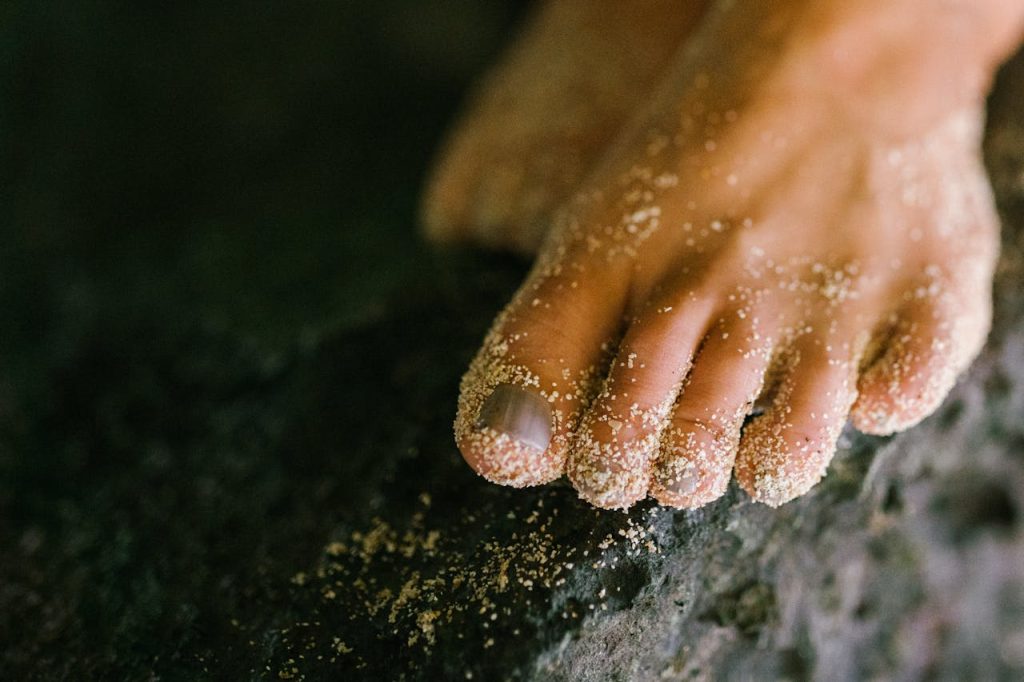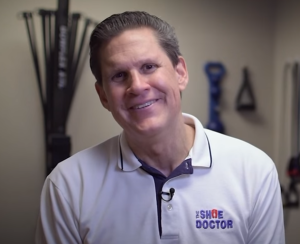Morton’s neuroma is a type of nerve injury that can cause pain, numbness, and tingling in the feet. Despite being a relatively common condition, there are still many misconceptions about Morton’s neuroma. In this blog post, we will dispel some of the most common myths about this condition. Stay tuned for more information!
Myth 1: Morton’s neuroma only affects women
Many people believe that Morton’s neuroma is a condition that only affects women, but this is simply not the case. While it’s true that women are more likely to develop the condition, men are certainly not immune to its effects. In fact, recent studies have found that around 15% of all cases occur in men. What’s more, no clear link has been found between gender and other risk factors for Morton’s neuroma, such as age, running style, and footwear. So while it may be true that women are disproportionately affected by this condition, anyone – regardless of their gender – can develop Morton’s neuroma if they put enough stress on the tissues in their feet or if they have a predisposing foot structure.
Ultimately, then, it’s important to understand that this condition does not discriminate based on gender or any other factor. Rather, it is an issue that can affect anyone who puts excess strain on the nerves and soft tissues of their feet. Thus whether you’re a man or a woman, if you think you might be at risk for developing Morton’s neuroma, talk to your doctor about ways to reduce your chances of getting it and manage your symptoms once you do have it.
Myth 2: High heels are the only cause of Morton’s neuroma
While high heels are often blamed for causing Morton’s neuroma, the truth is that they probably aren’t the main culprit. While wearing high heels can certainly put excess stress on the soft tissues of your feet and increase your risk of developing this condition, there are likely other factors at play as well. For example, if you have a high arch or flat feet, or if you run with an inward foot turn, you may be at increased risk for developing Morton’s neuroma. Additionally, some people may simply have naturally weak foot tissues that are prone to injury and irritation, which can increase their chances of getting this condition.
Regardless of the reason for your Morton’s neuroma, it’s important to take steps to manage your symptoms and prevent further damage. This may include switching to more supportive shoes or avoiding high-impact activities that put extra stress on your feet. Additionally, you may wish to consider seeing a podiatrist for a custom foot orthotic that can help support your feet and reduce the strain on your nerves.
Myth 3: Morton’s neuroma only happens in one foot
While Morton’s neuroma is more likely to develop in just one foot, it is possible for it to occur in both feet. In fact, studies have shown that around 5-10% of all Morton’s neuroma cases involve both feet. Additionally, people who have one foot that is particularly susceptible to this condition – due to factors like high arches, flat feet, or an inward foot turn – may be more likely to develop the condition in both feet eventually.
So if you have Morton’s neuroma in one foot, don’t assume that your other foot is in the clear. Be sure to take steps to reduce your risk of developing the condition and manage your symptoms if you do have it. This may include avoiding high-impact activities, wearing supportive footwear, or seeing a podiatrist for a custom foot orthotic.
Myth 4: Morton’s neuroma is always painful
Morton’s neuroma is a condition that affects the nerves in the foot. The condition is often painful, but not always. In fact, many people with Morton’s neuroma do not experience any pain at all. The condition is most common in women, and usually affects the nerve that runs between the third and fourth toes. Symptoms can include tingling, numbness, or pain in the foot. Treatment options include rest, ice, and anti-inflammatory medications. In some cases, surgery may be necessary to remove the neuroma.
Myth 5: There is no cure for Morton’s neuroma
While there is currently no cure for Morton’s neuroma, this condition can be treated successfully with a combination of rest, ice, anti-inflammatory medications, and in some cases, surgery. With early diagnosis and effective treatment methods, you can manage your symptoms and prevent further damage to the nerve. This will allow you to continue living a normal, active lifestyle.
If you think you may have Morton’s neuroma, it’s important to see your doctor for an accurate diagnosis. Once the condition is diagnosed, your doctor will work with you to develop a treatment plan that is best for you. With proper treatment, you can manage your symptoms and prevent further damage to the nerve. This will allow you to continue living a normal, active lifestyle.
Remember, The 3 Arches of Your Feet Still Need Support!
Maybe you have already felt the first symptoms of balance disorders or you want to prevent them from appearing in the first place. Consider getting a foot orthotic device or simply take care of your feet. Start by washing them thoroughly with a gentle soap whenever you take a shower. Being a very complex support system, your feet are your first line of defense against balance-related issues, since their arches provide you with the stability you need in your daily life. It’s time to put your foot down and push back against balance issues. With both feet on the ground, dedicate yourself to keeping them comfortable and healthy. Give us a call and we will scan your feet to make you custom orthotic inserts.
The Shoe Doctor has specialized in providing custom orthotics for 20 years. The right orthotic insoles can greatly reduce foot, knee and hip pain while increasing performance and comfort. Russell at The Shoe Doctor will help educate and assist you in finding the perfect solution for your particular situation. We will create a 3D map of your feet and make custom orthotics for your hiking boots, everyday shoes, and everything else in between. These orthotics, along with our expert advice, will get you using orthotics like a pro, and have you performing at the peak of your abilities in no time! If you are in the San Francisco Bay Area, give The Shoe Doctor a call to get the best custom orthotics in the area! We are here to assist you, schedule your free consultation here!
Disclaimer
The materials available on this website are for informational and entertainment purposes only and not for the purpose of providing medical advice. You should contact your doctor to obtain advice with respect to any particular issue or problem. You should not act or refrain from acting on the basis of any content included in this site without seeking medical or other professional advice. The information presented on this website may not reflect the most current medical developments. No action should be taken in reliance on the information contained on this website and we disclaim all liability in respect to actions taken or not taken based on any or all of the contents of this site to the fullest extent permitted by law.


